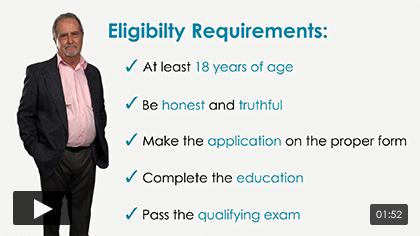This law clarifies the antideficiency protections available to one-to-four unit residential property owners following a short sale.
Code of Civil Procedure §580e
Amended by SB 458
Effective: July 15, 2011
A note secured solely by any type or priority of trust deed encumbering a one-to-four unit residential property, owner occupied or not, and sold under a lender’s short sale consent for an amount less than the debt (called a short sale) is now nonrecourse paper subject to antideficiency protection, if:
- title to the property is transferred to the buyer via a recorded grant deed or quitclaim deed; and
- the net proceeds of the sale are received by the lender in compliance with the lender’s written conditions for their short sale consent.
The same rules apply if a short sale occurs on a property for which the note is further secured by other property in addition to the one-to-four unit residential property, called cross-collaterization. In this case, the lender and all other parties with an interest in the trust deed lien on the property are barred from recovering further under the note secured by the trust deed on the one-to-four unit residential property.
A lender cannot collect any other compensation for a short sale consent beyond the net proceeds they agreed to accept and received from the short sale.
The above protections cannot be waived by the borrowers and owners of the property.
This antideficiency protection does not extend to:
- corporations;
- limited liability companies (LLCs);
- limited partnerships (LPs);
- political subdivisions of the state;
- trust deeds or liens securing debt issued by the Commissioner of Corporations; or
- trust deeds or liens made by a public utility.
Editor’s note — While much was made of this in real estate trade union circles, its basic effect on the market will at best be negligible. This law does not provide antideficiency protection against second trust deeds UNLESS a written short sale consent exists with that second trust deed lender. The likelihood of any second trust deed lender waiving their recourse rights by entering into a short sale consent is even more remote now that there is no way for the lender to collect on the money due after the short sale closes.
Owners will now better understand what they’re in for should the second lender refuse to cooperate. It’s more advantageous for a recourse second (not a purchase-assist note) money lender to force the first trust deed holder to foreclose and wipe out the second trust deed. They simply sue the owner/borrower directly on the note which is no longer secured. [For more information about the changes to antideficiency which took effect earlier this year, see the November 2010 first tuesday Legislative Watch.]
Also interesting to note is that the prohibition against waiver only specifically applies to the antideficiency protection for individuals with short sale consent voluntarily entered into by their mortgage lender(s). However, lenders may, at their whim, waive their right reserved to them to pursue money due from corporations, LLCs, LPs, etc., when discounting a note these entities signed.














What about foreclosures? Does the second holder come after you? or does the the antideficiency protection for second trust deeds apply?
Sharon: Thanks for posing the question. Real estate and mortgage law enacted during the 2011-2012 California legislative session includes no new law which alters the effects of S.B. 458. The “newer law” you heard from those lenders may have been in reference to S.B. 412, which has been sitting with the Senate since April 2011 and was most likely replaced by S.B. 458. [Calif. Code of Civil Procedure §580e]
People in Sacramento gossip circles will stir up talk on these bills but when they turn dead – like S.B. 412 most likely will when the session ends – the conversation on the bills are thrown out the window abruptly.
Currently, state law does not provide antideficiency protection for second trust deeds notes (other than purchase-assist loans and carrybacks on one-to-four residential units) unless the second trust deed lender consents in writing to a short payoff on a sale of a one-to-four unit residential property. [For more information about antideficiency laws in California, see Chapter 43 “Antideficiency: past, present and future” in the first tuesday book, Real Estate Finance.]
Sb458 was “suppose” to help sellers. Originally, I felt it would hurt the seller because if forces the lender to accept the short sale amount as payment in full…..but in speaking to the major lender some of the processors do not even know about the new law! The other day I hear there is even a newer law, something about the junior lien holders HAVE to accept the outline of the first TD short sale approval. Do you have any info on this?
Thanks
The item about small claims ceiling being raised to $10,000 isn’t quite complete. The higher amount applies only to “natural persons.” If the landlord is a business (a DBA, partnership, LLC, etc.), then small claims court jurisdiction is limited to $5,000. The analysis of SB 221 explains: ” The policy behind keeping a lower threshold for businesses is to protect consumers who may become defendants. Because the action is brought in small claims court, those consumers will not have access to an attorney. There is a greater likelihood that businesses will have access to more resources and may potentially have access to outside legal services. This defeats the purpose of small claims court and could result in a consumer potentially being held to pay a significant amount of money without the aid of an attorney and with very little recourse.” These days, most landlords operate as businesses, not in their own personal names.
So just to fully understand the new and the old “recourse and non-recourse” as it applies to 1-4 units. Let’s say a homeowner has owned the home for several years and borrows and secures the loan with a 2nd lien and the money was used for autos and vacations. The first lender forecloses wipes out the 2nd and the homeowner is not subject to a deficiency?